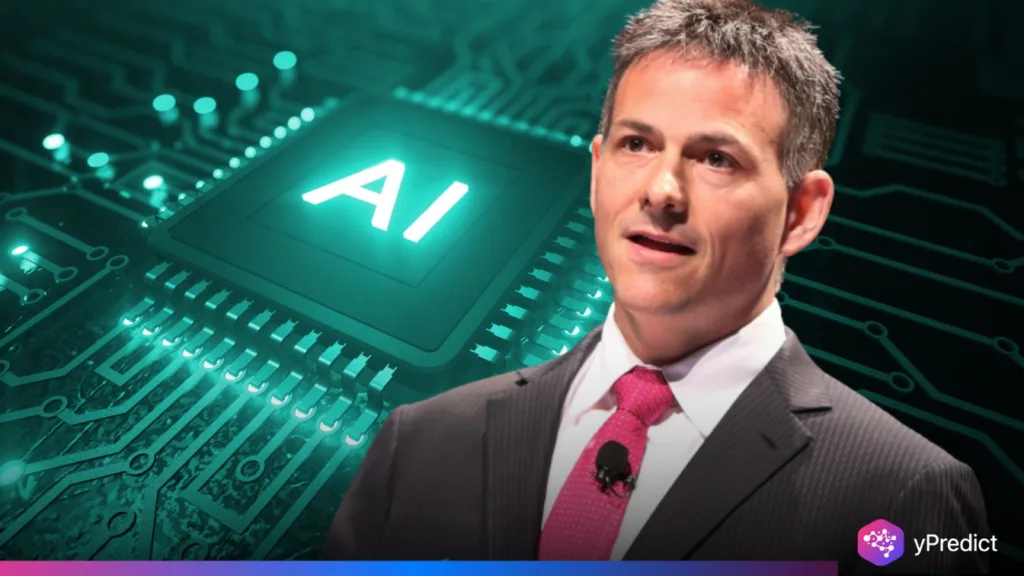
David Einhorn gingerly steps back into the limelight once again. Billionaire investor who predicted Lehman Brothers’ collapse pre-2008 crisis pulls no punches. In a post @zerodhamarkets 27 September 2025, he cautions that the AI boom is not the treasure trove everyone anticipates. His concern? An atomic bomb of a splurge, ready to explode under its own overwhelming bulk. The thread juxtaposes this with old-school booms with agonizing corrections. The takeaway: AI may change the world, but investors could still lose fortunes along the way.
Overinvestment Warnings
David Einhorn is no stranger to the before-the-storm bugle call. His record during the 2008 crisis lends his concerns today some credibility. And in @zerodhamarkets post he emphasizes the significant outlays from tech leaders Amazon, Microsoft, Meta and Google. Together, they’ve added an additional $100-200 billion in capex, in half a year. For Einhorn, those numbers look less like innovation and more like history repeating itself.
The thread backs him up. We’ve heard it’s been likened to old booms, or the 1880s railroads, or early computers. Each time, optimism dwarfed reality. Every time, investors bled and then bled when expectations under-performed. NBER even tracked these ebbs and flows in 2023 research. Overinvest, then retreat slightly, then incremental reentry, but only after you’ve bled for decades. Einhorn believes AI sits in that exact spot today.
Consider NVIDIA. Elliott Management called it a bubble. Praetorian Capital adds sharper numbers. They project new AI datacenters at $40B in depreciation annually but revenue is just $15-$20B. The math stings: depreciation destroys more than almost 2-to-1 earnings. For Einhorn, that’s a warning sign. It’s cash burn like even trillion-dollar companies can’t stomach. And if growth decelerates, the crash could be like the dot-com boom and bust. That collapse slashed 78% of tech stocks after March 2000. The parallels are clear enough to worry even the boldest optimist.
The Counterpoint: AI’s Promise
However, David Einhorn’s vision isn’t the only thing fueling sentiment. It’s not buckets of water, it’s the likes of Sam Altman and Mark Zuckerberg hurling gasoline onto AI’s inferno. Altman said he anticipates trillions in new datacenter construction. Zuckerberg cautions that underinvesting would be the real error. They see AI less as a bubble and more as critical infrastructure, something like electricity in the 20th century.
Backing them up, Deutsche Bank’s September 2025 report shows AI already raising U.S. GDP parabolically. The recognizability, it seems, is doing its job — for the time being. But even Deutsche Bank sugars the hopeful note. As they argue, short-term spikes aren’t evidence of long-term benefit. Without better margins, the whole edifice wobbles. Meanwhile, OpenAI itself has an $850 billion buildout. That’s nearly five times what Amazon spends annually. If that plan stalls, investors could suffer the same fate Einhorn warns against.
The McKinsey outlook for April 2025 clarifies the stakes. They forecast global AI capex of $5.2T by 2030. Contrast that with the $139tr sustainable development investment required globally to 2050. AI has the comparable opportunity AND huge risk. EY says AI could also fast-track that sustainability goal — but not if its economics tank first. And history does matter here — sure, railroads were a disaster for 19th century investor, but a half-century later they powered modern-day trade. Not even the internet’s 2000 crash could derail its economy reinvention. The question is whether investors today have the patience, and whether Einhorn’s prediction again proves true.
Conclusion
David Einhorn has made an art of well-timed skepticism. His AI caution — like his previous calls — is hard-nosed, data-driven, and deeply contrarian. Capital is flooding AI at an all-time high level. But the revenue lags and expenses pile up more quickly than income. Although their visionary leaders like Altman and Zuckerberg advocate growth at all costs, Einhorn highlights that the economics just don’t add up. Or maybe they’re both right — AI might reshape the future, but investors can still suffer brutal losses in the short term. The wager, as ever, is whether the thrill gets remembered, or the correction.






